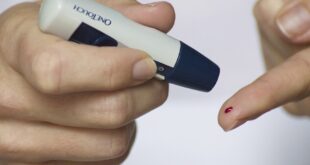Fighting Depression in Parkinson’s Patients
1. Engage in Physical Activities
Exercise plays a crucial role in managing depression among individuals with Parkinson’s disease. Engaging in physical activities can help release endorphins, also known as the “feel-good” chemicals, reducing depressive symptoms. Consider activities like walking, swimming, yoga, or any exercise that suits individual preferences and abilities.
2. Seek Emotional Support
Building a strong support system is essential for combating depression. Parkinson’s patients should consider joining support groups where they can meet individuals facing similar challenges. Interacting with those who understand their struggles can provide emotional comfort and guidance. Speaking to loved ones, friends, or professional therapists can also offer valuable emotional support in times of need.
3. Embrace Hobbies and Interests
Engaging in activities that bring joy is an excellent way to uplift spirits and focus on positive aspects of life. Whether it’s painting, gardening, playing a musical instrument, or exploring new hobbies, nurturing personal interests helps divert attention from depression. Embracing hobbies enables individuals to find solace and satisfaction, leading to an overall sense of well-being.
4. Maintain a Healthy Lifestyle
Aiming for a healthy lifestyle positively impacts both physical and mental health for individuals with Parkinson’s disease. A nutritious diet, regular sleep patterns, and avoiding harmful substances such as tobacco and excessive alcohol consumption can contribute to mood stabilization. Prioritizing self-care, engaging in relaxation techniques, and practicing mindfulness can further reduce depressive symptoms.
5. Educate and Empower Yourself
Gaining knowledge about Parkinson’s disease and depression allows individuals to become advocates for their own well-being. Stay informed about the latest advancements, treatment options, and support strategies through reliable sources. By educating yourself, you can effectively communicate and collaborate with healthcare professionals, fostering a sense of empowerment in managing both conditions.
6. Practice Mindfulness and Stress Reduction Techniques
Implementing mindful practices and stress reduction techniques can significantly alleviate depression symptoms. Deep breathing exercises, meditation, and relaxation techniques like progressive muscle relaxation or guided imagery help calm the mind and reduce stress. These practices assist in creating a positive mindset, providing emotional resilience to cope with the challenges posed by Parkinson’s disease.
7. Consider Medication and Professional Help
In some cases, seeking medical advice becomes essential for effectively combating depression. Consultation with healthcare professionals can lead to the identification of appropriate treatment options such as therapy or medications to manage depressive symptoms. A combination of professional help along with self-help strategies can lead to improved overall well-being for individuals with Parkinson’s disease.
It is vital to emphasize that seeking support, educating oneself, and actively engaging in activities that maintain physical, mental, and emotional well-being are key to fighting depression in individuals with Parkinson’s disease. Remember, with the right resources and support, brighter days lie ahead!
 Mind Uncharted Explore. Discover. Learn.
Mind Uncharted Explore. Discover. Learn.

